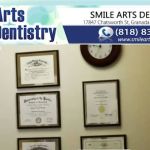
Best Oral Care Tips for Preventing Tooth Disease
- Why Oral Care is Important for Preventing Tooth Disease
- Effective Toothcare Routines for Healthy Teeth
- The Role of Diet in Oral Health
- Common Mistakes to Avoid in Oral Care
- When to See a Dentist for Oral Health Issues
Why Oral Care is Important for Preventing Tooth Disease
Oral health is often overlooked, but it plays a critical role in your overall well-being. Tooth diseases like cavities, gum disease, and bad breath can not only affect your smile but also lead to serious health problems. Studies have shown that poor oral hygiene can be linked to heart disease, diabetes, and other systemic issues. By adopting a proper oral care routine, you can drastically reduce your risk of tooth decay, gum disease, and other dental problems.
Effective Toothcare Routines for Healthy Teeth
The cornerstone of preventing tooth disease is a solid oral care routine. This includes brushing your teeth twice a day with fluoride toothpaste, flossing regularly to remove plaque between your teeth, and using mouthwash to kill bacteria. A great routine also involves replacing your toothbrush every three months and after an illness to prevent bacteria buildup. But what does "effective" oral care truly mean? It's more than just brushing—it's about consistency, technique, and using the right products.
Brushing Your Teeth: Technique and Frequency
Brushing your teeth for at least two minutes is key. Be sure to use gentle, circular motions to avoid damaging your gums and enamel. Using a soft-bristled toothbrush is highly recommended to prevent wear on your teeth and gums. An electric toothbrush can help maintain consistency and ensure you're brushing thoroughly. Don't forget your tongue and the roof of your mouth; bacteria often linger there too.
Flossing: An Essential Step
Flossing is vital for removing food particles and plaque that your toothbrush can’t reach. It also helps in preventing gum disease by cleaning the areas between your teeth, where bacteria can easily accumulate. Make sure to floss gently to avoid injuring your gums. It's easy to forget about flossing, but incorporating it into your routine is one of the most effective ways to prevent tooth disease.
The Role of Diet in Oral Health
Your diet plays a significant role in the health of your teeth. Sugary foods and drinks promote the growth of harmful bacteria in your mouth, leading to plaque buildup and tooth decay. Opt for foods rich in calcium, like dairy products, to strengthen your teeth and bones. Crunchy vegetables such as carrots and celery are excellent for cleaning your teeth while providing essential vitamins. Green tea is another great addition to your diet due to its antibacterial properties.
Foods to Avoid
Sugary snacks, carbonated drinks, and acidic foods should be consumed in moderation. Over time, these can erode tooth enamel and lead to cavities. While it's okay to indulge occasionally, always rinse your mouth with water afterward and brush your teeth after eating sugary or acidic foods.
Common Mistakes to Avoid in Oral Care
Many people make simple mistakes when it comes to oral care. One of the biggest mistakes is brushing too hard. This can lead to gum recession and enamel erosion. Another common mistake is neglecting to visit the dentist regularly. Even if you're diligent about brushing and flossing, professional cleanings are essential to remove tartar buildup and spot potential issues early on.
Overlooking Gum Health
Gum disease can be just as harmful as tooth decay, and it often goes unnoticed in the early stages. Signs of gum disease include bleeding gums, bad breath, and receding gums. Make sure to include gum care in your routine by brushing gently along the gum line and using mouthwash that targets gum health.
When to See a Dentist for Oral Health Issues
While daily oral care is important, you should never underestimate the importance of regular dental checkups. Visiting the dentist at least twice a year is essential to monitor your oral health and catch issues like cavities or gum disease before they become severe. If you notice any unusual symptoms such as tooth pain, swollen gums, or persistent bad breath, make an appointment with your dentist as soon as possible.
Maintaining good oral hygiene and following these best oral care tips will not only prevent tooth disease but also keep your smile bright for years to come. If you're ready to take your oral health to the next level, consider exploring premium dental care products that can complement your routine and give you an extra boost in protecting your teeth.
Click here to explore our latest dental care products and keep your smile healthy!







 SmileArts Dentistry - Dr. Ray Firooz, DDS5.0 (74 review)
SmileArts Dentistry - Dr. Ray Firooz, DDS5.0 (74 review) NuSet Dental Implants and Oral Surgery of Scottsdale4.0 (20 review)
NuSet Dental Implants and Oral Surgery of Scottsdale4.0 (20 review) Dr. Matthew Young, DDS5.0 (259 review)
Dr. Matthew Young, DDS5.0 (259 review) Aspen Dental - Raynham, MA4.0 (311 review)
Aspen Dental - Raynham, MA4.0 (311 review) Little Big Smiles Pediatric Dentistry of Fort Myers5.0 (130 review)
Little Big Smiles Pediatric Dentistry of Fort Myers5.0 (130 review) Southside Orthodontics - Your Colonial Heights and Chesterfield Orthodontist4.0 (274 review)
Southside Orthodontics - Your Colonial Heights and Chesterfield Orthodontist4.0 (274 review) The Importance of Oral Health Education During Pregnancy for a Healthy Pregnancy
The Importance of Oral Health Education During Pregnancy for a Healthy Pregnancy Best Tips for Brushing Your Teeth Properly for Healthy Gums: Essential Techniques for Oral Health
Best Tips for Brushing Your Teeth Properly for Healthy Gums: Essential Techniques for Oral Health Why Skipping Dental Checkups Can Lead to Bigger Oral Health Problems
Why Skipping Dental Checkups Can Lead to Bigger Oral Health Problems Advantages of Porcelain Dental Restorations
Advantages of Porcelain Dental Restorations How Can Diabetes Cause Tooth and Gum Problems? Preventing and Managing Oral Health Issues
How Can Diabetes Cause Tooth and Gum Problems? Preventing and Managing Oral Health Issues Healthy Habits for Promoting Good Oral Health and Hygiene: Tips for a Healthy Smile
Healthy Habits for Promoting Good Oral Health and Hygiene: Tips for a Healthy Smile